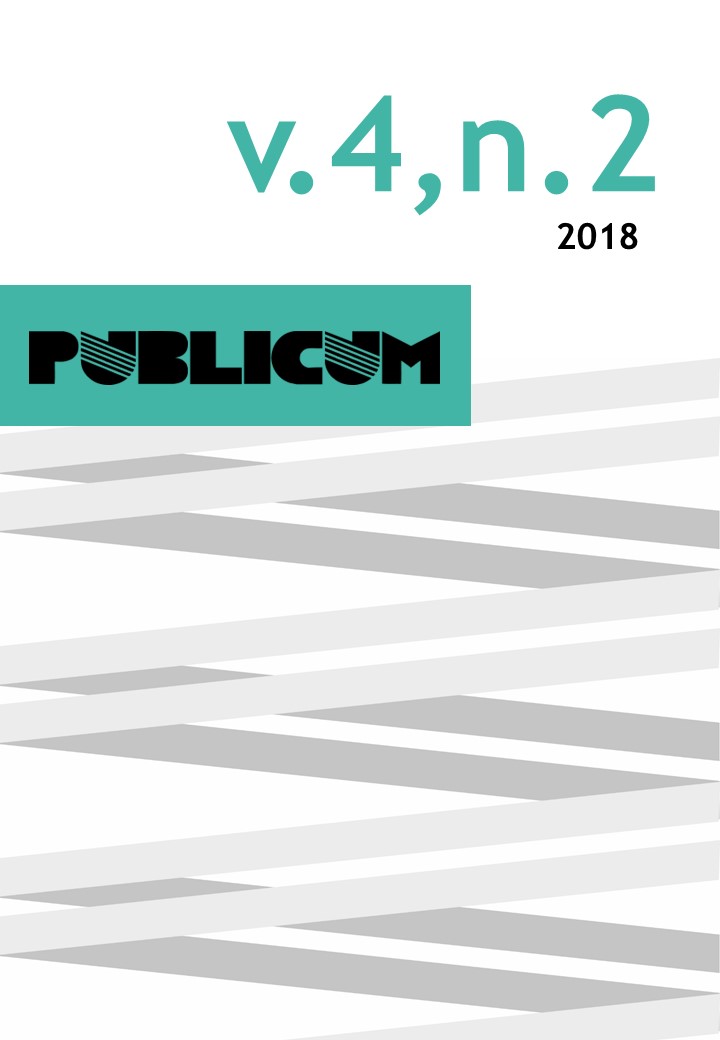Como normas constitucionais colapsam | How Constitutional Norms Break Down
DOI:
https://doi.org/10.12957/publicum.2018.38772Schlagworte:
Normas constitucionais, Mudança constitucional, Direito e política, Administração Trump.Abstract
A partir do momento em que Donald Trump foi eleito presidente, críticos se angustiaram com o colapso das normas constitucionais. A história demonstra, no entanto, que as normas constitucionais estão perpetuamente em fluxo. A principal fonte de instabilidade não é que essas regras não-escritas possam ser destruídas por políticos que negam sua legitimidade, sua validade ou seu valor. Na verdade, a principal fonte de instabilidade é que as normas constitucionais podem ser decompostas- interpretadas dinamicamente e aplicadas de formas consideradas adequadas, mas que limitam sua capacidade de restringir a conduta de agentes do governo.
Este artigo chama a atenção para essa instabilidade latente e, ao fazê-lo, começa a taxonomizar e teorizar a estrutura da mudança da norma constitucional. Exploramos alguns dos diferentes modos em que normas não-escritas colapsam em nosso sistema constitucional e os diferentes perigos e oportunidades associados a cada um deles. Além disso, argumentamos que, sob certas condições plausíveis, será mais preocupante quando as normas forem sutilmente revisadas do que quando forem abertamente desprezadas. Este argumento um tanto paradoxal sugere que muitos comentaristas têm julgado de forma equivocada nosso momento atual: o flagrante desafio do presidente Trump às normas pode não ser uma ameaça tão grande à nossa democracia constitucional como a deterioração mais complexa de normas em curso em outras instituições.Downloads
Veröffentlicht
Zitationsvorschlag
Ausgabe
Rubrik
Lizenz
O autor do trabalho declara conhecer e concordar com as regras a seguir:
1) Realizou o trabalho apresentado à revista, sendo inteiramente responsável pelas ideias e conceitos nele emitidos, que não correspondem, necessariamente, ao ponto de vista dos Editores de Publicum.
2) Obedeceu, na realização do trabalho, os princípios éticos aludidos na política de avaliação da revista[RDN1] .
3) Assume a autoria e a responsabilidade pela obra, declarando que ela não infringe quaisquer direitos de propriedade intelectual de terceiros.
4) Responsabiliza-se, integralmente, por danos de natureza moral ou patrimonial que a veiculação da obra venha a gerar a terceiros.
5) Cede à revista os direitos de reprodução, edição e primeira publicação do trabalho em qualquer meio midiático, em particular sob forma digital, em arquivo eletrônico online na internet.
6) Confere aos Editores o direito de modificar o texto apresentado, sem prejuízo de seu conteúdo, quando necessário para uniformizar a apresentação dos trabalhos e para atender as normas de edição próprias da revista.
7) Concorda com a forma final do trabalho aprovada pela revista.
8) Autoriza a divulgação do trabalho nos canais de comunicação da Faculdade de Direito da UERJ.
9) Concorda com a reprodução de pequenos trechos do trabalho em outras publicações da UERJ.
10) Reconhece que, pela cessão e autorizações acima referidas, não receberá remuneração sob qualquer modalidade, tendo estas o caráter de colaboração científica.
11) Tem ciência de que a publicação do trabalho poderá ser recusada caso não considerada conveniente, por qualquer motivo que seja, sendo que tal recusa não gera responsabilidade e/ou ônus de espécie alguma à revista ou UERJ.
[RDN1]Ver COPE.

Publicum está licenciado com uma Licença Creative Commons Atribuição-NãoComercial 4.0 Internacional.

